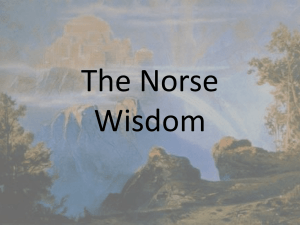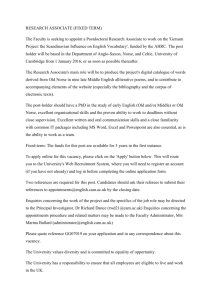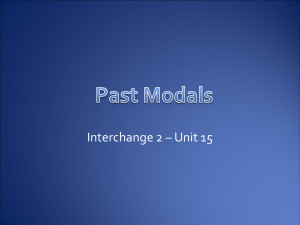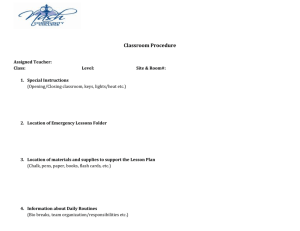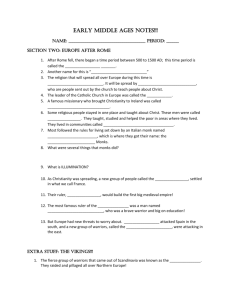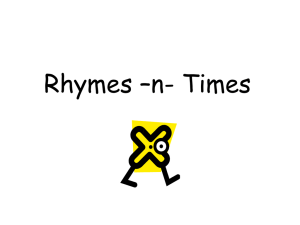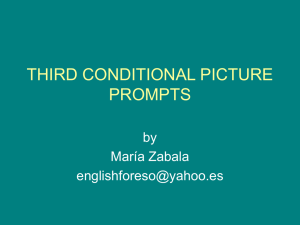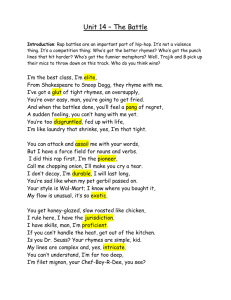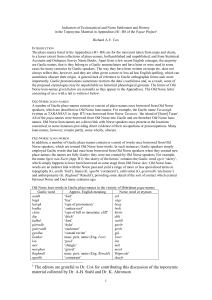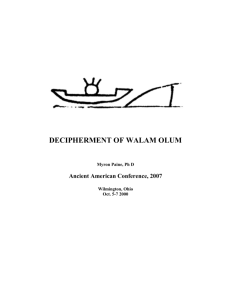The examples below are from the lexicon of Yorkshire dialect speakers
advertisement
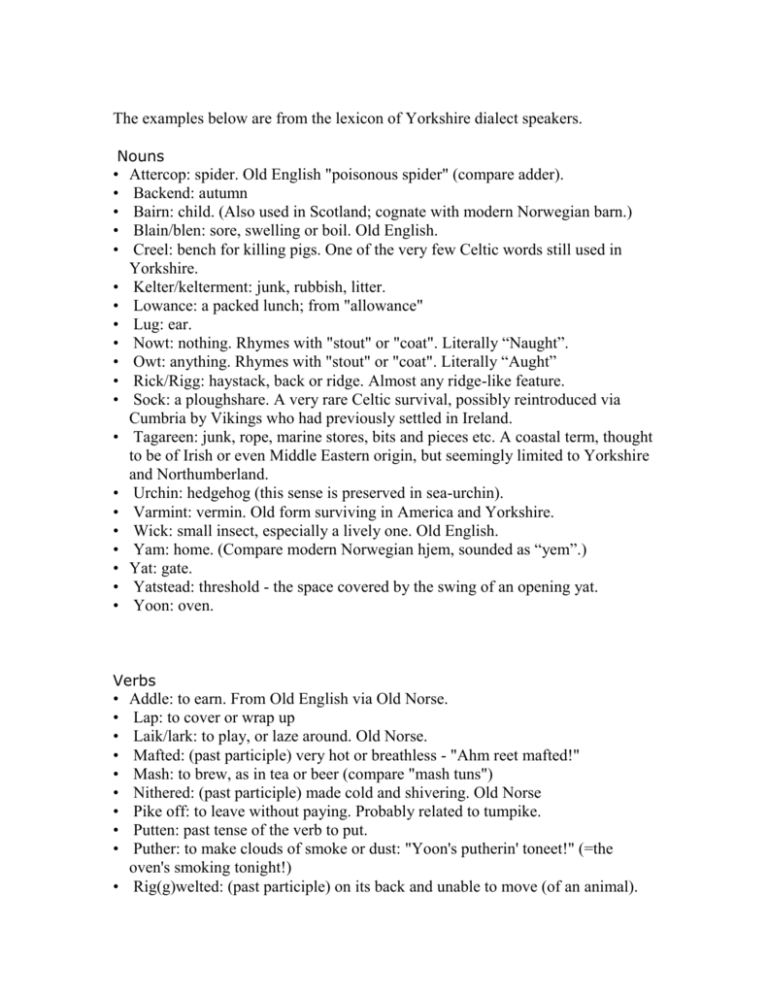
The examples below are from the lexicon of Yorkshire dialect speakers. Nouns • • • • • • • • • • • • • • • • • • • • Attercop: spider. Old English "poisonous spider" (compare adder). Backend: autumn Bairn: child. (Also used in Scotland; cognate with modern Norwegian barn.) Blain/blen: sore, swelling or boil. Old English. Creel: bench for killing pigs. One of the very few Celtic words still used in Yorkshire. Kelter/kelterment: junk, rubbish, litter. Lowance: a packed lunch; from "allowance" Lug: ear. Nowt: nothing. Rhymes with "stout" or "coat". Literally “Naught”. Owt: anything. Rhymes with "stout" or "coat". Literally “Aught” Rick/Rigg: haystack, back or ridge. Almost any ridge-like feature. Sock: a ploughshare. A very rare Celtic survival, possibly reintroduced via Cumbria by Vikings who had previously settled in Ireland. Tagareen: junk, rope, marine stores, bits and pieces etc. A coastal term, thought to be of Irish or even Middle Eastern origin, but seemingly limited to Yorkshire and Northumberland. Urchin: hedgehog (this sense is preserved in sea-urchin). Varmint: vermin. Old form surviving in America and Yorkshire. Wick: small insect, especially a lively one. Old English. Yam: home. (Compare modern Norwegian hjem, sounded as “yem”.) Yat: gate. Yatstead: threshold - the space covered by the swing of an opening yat. Yoon: oven. Verbs • • • • • • • • • Addle: to earn. From Old English via Old Norse. Lap: to cover or wrap up Laik/lark: to play, or laze around. Old Norse. Mafted: (past participle) very hot or breathless - "Ahm reet mafted!" Mash: to brew, as in tea or beer (compare "mash tuns") Nithered: (past participle) made cold and shivering. Old Norse Pike off: to leave without paying. Probably related to tumpike. Putten: past tense of the verb to put. Puther: to make clouds of smoke or dust: "Yoon's putherin' toneet!" (=the oven's smoking tonight!) • Rig(g)welted: (past participle) on its back and unable to move (of an animal). • • • • • • • Rive: to tear or rip out. Sile: to rain heavily. Skell: To tip or spill. Old Norse. A sower skells the seed. Skellered: (past participle) crooked. Theak: to thatch - as in surname Theaker. Old Norse. Thoil/thole: to tolerate, put up with, stand or bear. Old English. 'Ug: (verb) from "hug". Always used to mean lift or carry, not to embrace in the standard sense. Adjectives • Backendish: autumnal. >Cat Hawed: drunk - pronounced "cattored'. • Nesh: weak, feeble. Feels the cold. Old English. • Mafted: very hot or breathless - "Ahm reet mafted!" • Nithered: made cold and shivering. Old Norse. • Slape: slippery. • Wick: lively. Relates to quick, originally meaning "alive" (e.g. "as wick as a lop" = "As lively as a flea"). Old English cwicu ("alive"). Forms like mafted and nithered come from verbs that have passed out of use. The past participle form is used adjectivally in passive constructions. Adverb • Appen: (adverb) perhaps (like Shakespeare's haply) Intensifiers • Ovver: over. Rhymes with "hover". • Ower: over. Rhymes with "hour" or "sower". • Reet: very, extremely (cognate of "right" that also serves as intensifier in older usage - "you know right well...").
